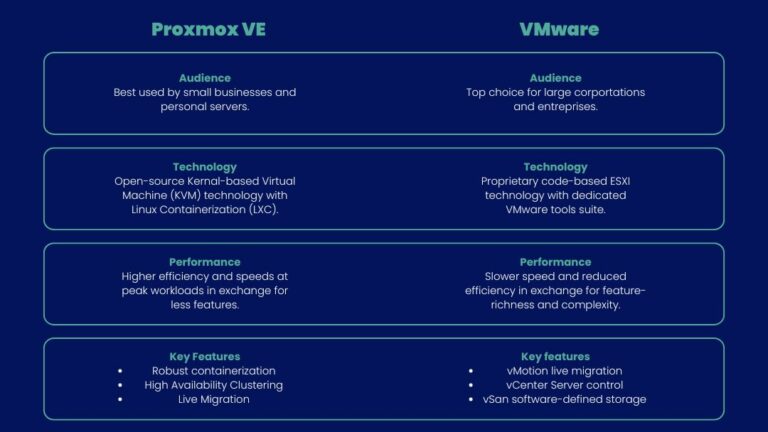What’s Better: Proxmox or VMware?
Proxmox and VMware are two popular virtualization platforms that offer various functionalities and advantages. In this article, we’ll explore what’s better – Proxmox or VMware – and help you make the right choice for your business.
Proxmox:
Proxmox is a free, open-source virtualization platform based on the Linux kernel. It offers container-level and virtual machine virtualization, as well as resource and network management. The advantages of Proxmox include flexibility, reliability, and ease of use.
- Open source
- Free license
- Extensive configuration options
- User-friendly web interface
Proxmox also supports a variety of data storage options, including ZFS, Ceph, and NFS, making it an ideal choice for organizations of all sizes.
VMware:
VMware is a commercial virtualization platform that offers a wide range of products and services for virtualizing servers, desktops, and cloud environments. VMware is known for its reliability, performance, and extensive user community.
- Wide selection of products and services
- Advanced management capabilities
- High performance
- Technical support
VMware also offers cloud services, including VMware Cloud on AWS, which combines the capabilities of VMware with the Amazon Web Services infrastructure.
So, which is better: Proxmox or VMware? The answer depends on your needs and budget. If you need a free and flexible open-source platform, Proxmox is an excellent choice. However, if you require advanced features and high performance, VMware might be preferable.
Ultimately, both platforms have their strengths and are suitable for different use cases. Therefore, before making a decision, we recommend that you conduct a thorough analysis of your needs and the capabilities of each platform.




